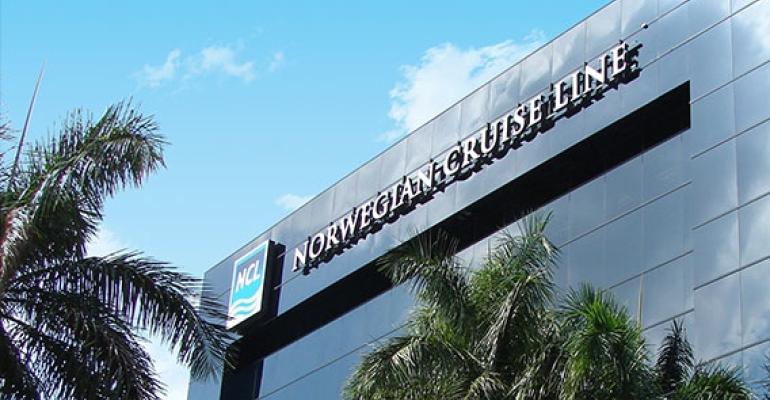'As we informed the courts on Tuesday, October 4th, because we are no longer requiring COVID-19 vaccination to board our vessels, we believe the preliminary injunction granted in August 2021 was moot and therefore appropriate to be lifted,' NCLH said in a statement provided to Seatrade Cruise News.
July 2021 lawsuit
NCLH took Florida to court in July 2021 after the state passed a law banning private businesses from requiring customers to present proof of COVID-19 vaccination. The company promised its passengers 100% vaccinated cruises before the statute was enacted on May 3, 2021, and before it took effect on July 1, 2021. Also, at the time, key cruise destinations were requiring vaccination.
So documentation of that was necessary, NCLH said.
Fines of up to $5,000 per infraction
If the state enforced its law against such documentation, NCLH could have faced fines of up to $5,000 per infraction.
So the cruise operator moved for a preliminary injunction, which a district court granted in August last year. Judge Kathleen Williams decided NCLH demonstrated a substantial likelihood of success in its case on the merits of its First Amendment (free speech) and Commerce Clause claims.
Florida appealed the ruling.
2-1 decision
The 11th Circuit Court of Appeals, in a 2-1 decision this month, agreed with Florida and vacated the preliminary injunction. The appeals court disagreed with Judge Williams and determined NCLH was unlikely to prevail with its First Amendment and Commerce Clause arguments.
Regulation of economic conduct that only incidentally burdens speech
Appeals Court Chief Judge William Pryor concurred with Florida's stance that its statute doesn't violate the First Amendment because it is a regulation of economic conduct that only incidentally burdens speech.
Commerce Clause
Concerning the Commerce Clause — which gives Congress primary authority to regulate interstate and international commerce and limits a state's ability to interfere in such activity — NCLH argued the statute interfered with its business of operating cruises beyond Florida.
But Pryor noted the state has a substantial interest in protecting its residents from the 'harmful effects of discrimination' and the medical privacy of its residents. So, he said, Florida sought to further those interests by 'enacting a statute that proscribes businesses from subjecting an entire class of residents — including a substantial minority population — to economic ostracism by requiring that they produce medical documentation they either do not have or would like not to convey.'
Because, Pryor continued, these justifications are 'not illusory,' the court cannot 'second guess the legislature’s judgment as to the relative importance of [those] justifications versus any burdens imposed on interstate commerce.' ... It follows that 'the burden on interstate commerce' does not 'clearly outweigh[] the state’s legitimate purposes.'
Citing other court rulings, Pryor said 'Florida may, consistent with the Commerce Clause, remov[e] ... barriers to the participation by its residents in the free flow of interstate commerce.'
123-page ruling and dissent
The 123-page ruling includes a dissenting opinion by Judge Robin Rosenbaum, who maintained Florida's vaccine passport ban is unconstitutional.
Copyright © 2024. All rights reserved. Seatrade, a trading name of Informa Markets (UK) Limited.
Add Seatrade Cruise News to your Google News feed.  |

